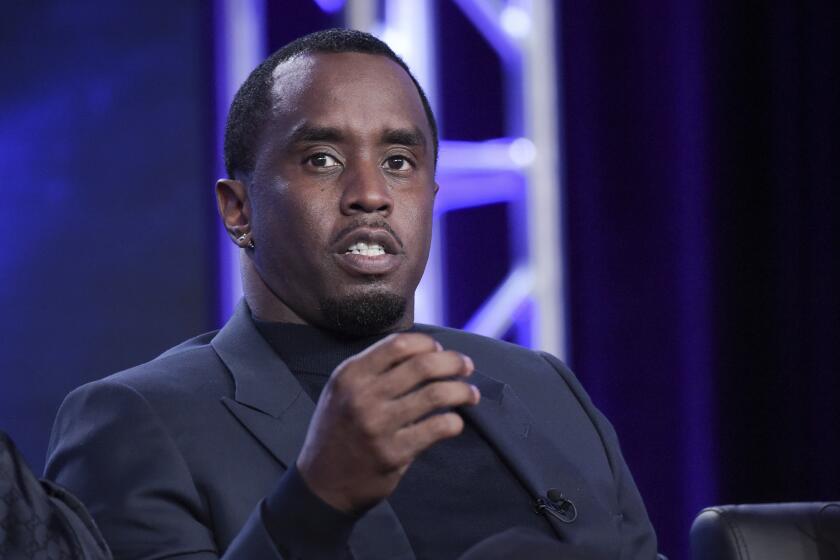Record Labels Grapple With CD Protection
For three straight holiday seasons, record executives say, Internet piracy has been the Grinch of the music business, undercutting album sales and labels’ year-end profits.
So how did the labels open the biggest music-buying period of the year? By shipping an estimated 250 million albums to retailers without any protection against digital piracy.
Music and technology executives vow that this will be the last holiday season without widespread use of technology that prevents songs from being transferred from CDs to the Internet. Of course, they’ve made that prediction before.
Top executives at Vivendi Universal, owner of the largest record company, said last year that every CD they released this Christmas would have anti-copying technology. Each of its rivals, meanwhile, was testing ways to produce CDs that resisted piracy.
So far, though, the only commercial U.S. releases with copy protection have been four comparatively obscure discs from Universal. Think rapper Pretty Willie, not rap star Eminem.
Perhaps most striking about the labels’ failure to lock down CDs is that they have taken a particularly aggressive stance abroad, where copy-protected discs are increasingly common.
Hundreds of new titles have been released overseas with copy protection, including the latest efforts by hit makers such as Celine Dion, Robbie Williams and the Foo Fighters. Many, including those from Sony Corp. and Bertelsmann subsidiary BMG, can’t even be played on a computer.
“I think people will be surprised in January when they hear the number of releases that came out with copy protection” overseas, said Adam Sexton, vice president of marketing for Macrovision Corp., a Santa Clara, Calif.-based supplier of anti-piracy technology.
To be sure, executives are clamoring to shut off the stream of music flowing online in the United States, where album sales have declined an unprecedented 10% this year. Although other factors have helped drive down demand -- including complaints about the price and quality of CDs as well as the rising competition from DVDs and video games -- the global reach of online piracy is undeniable.
So why haven’t more copy-protected discs been released in the world’s biggest CD market?
One reason is that three years after Napster Inc. demonstrated how easily an ordinary CD can be shared by consumers around the globe, label executives don’t think the technology for copy-protected CDs is foolproof enough to release domestically. They also worry that American consumers are so enamored of “ripping” music onto their computers that they would reject CDs with copy protection and rebel against artists who record such albums.
“All of a sudden, the cry for protection at any costs turned into an ‘Oh, my God, we might lose the people that are left’ kind of fear,” said Chief Executive Peter Jacobs of SunnComm Inc., a Phoenix-based developer of copy-protected CDs.
U.S. consumers have more legal freedom to make copies for personal use than listeners in Europe or Japan, and they’re more likely to sue when their expectations aren’t met. Two California consumers already have filed a class-action lawsuit against the five major record companies, alleging that copy-protected CDs are defective products that shouldn’t be allowed on the market.
The labels also face opposition from some artists who argue that copy-protected CDs will drive away fans. Said Jim Guerinot, who manages such acts as No Doubt and Beck, “We build this nice wall around our music so people can’t steal it, but how many people are we blocking from actually using it?”
Beyond that, even label executives agree that copy-protection technologies can’t stop every would-be pirate from breaking the locks on the songs. And all it takes to fuel global copying on a file-sharing network is one person with an unlocked version of the CD.
Nevertheless, executives at SunnComm and Macrovision say they’re close to completing work on new versions of anti-piracy technology that will satisfy the labels’ demands for U.S. releases. The latest approach will allow songs to be copied to computers, transferred to portable devices and even recorded onto CDs -- with some limitations.
Indeed, SunnComm said it’s already installing its anti-copying gear in a CD manufacturing plant in North Carolina owned by Bertelsmann subsidiary Sonopress. By next year’s holiday season, executives at the two companies say, a sizable percentage of the major labels’ releases will be copy-protected.
CDs were introduced in 1982, when consumers weren’t equipped to make digital copies and piracy was largely the work of professionals. The discs’ vulnerability didn’t become evident until the late 1990s, when millions of consumers with powerful personal computers could convert CDs into compressed data files that were easily copied, and affordable high-speed Internet connections could distribute those files in a matter of seconds.
Now, much of the music recorded during the last four decades is available free online -- a notion that terrifies record labels whose bottom lines rely on continuous sales and reissues of artists’ older work.
Meanwhile, the price of the equipment used to duplicate CDs has plummeted, fueling a rise in copying. Label executives say this kind of copying takes place on a smaller scale than that enabled by online file-sharing networks, with consumers making copies for a few friends instead of the entire Internet. Yet it’s become so widespread in parts of Europe, some executives argue, that it’s a bigger problem there than online piracy.
In response, Sony, SunnComm and Midbar Tech Ltd., among others, produced discs that couldn’t be read by computers, CD duplicators and other devices with CD-ROM drives but that still worked in standard CD players. But the initial discs confounded many DVD players, high-end car stereos and other portable devices with CD-ROM drives, generating a storm of criticism that sent the engineers back to the drawing board.
Later versions of the technology improved the discs’ compatibility with DVD players, although they sacrificed some degree of protection against copying. The industry also created “dual session” discs that presented the songs in two copy-protected formats: one that could be played by basic CD players and another that could be played by a computer.
These changes were more than enough to satisfy the record companies’ demands for foreign markets. They also convinced Universal to proceed with four copy-protected U.S. releases. While Pretty Willie (“Enter the Life of Suella”) and Los Toros Band (“Serenatas”) have sold less than 40,000 discs combined, two copy-protected soundtracks have done surprisingly well, according to sales figures compiled by Nielsen SoundScan: “Brown Sugar” has sold about 280,000 copies, and “More Music From the Fast and the Furious” about 263,000.
A Universal spokeswoman said a tiny percentage of the four discs has been returned, matching the rate for conventional CDs.
Still, with Napster demonstrating how eager U.S. consumers are to copy songs onto computers and create custom playlists, Universal and its rivals want one more change for the U.S. market. They have asked tech companies to supply dual-session discs with songs that can’t be transmitted over the Net but can be ripped onto a computer and transferred to portable devices.
Jacobs at SunnComm said his company’s latest technology fits the bill, and it’s being tested by three of the five major record companies. Sexton of Macrovision, which bought Midbar in early November, said his company will have a similar offering early next year.
The goal, Sexton said, is to enable all the personal uses consumers expect from an ordinary CD, just in a more limited fashion. In particular, the dual-session discs being developed by SunnComm and Macrovision don’t allow consumers to convert songs to MP3 files, the most popular format for music on computers and portable digital players.
Instead, when consumers copy one of the new discs onto their computers, they end up with a set of scrambled song files in Microsoft Corp.’s Windows Media Audio format. Those files can be transferred only to portable devices that support Windows Media.
The labels also want copy-protected discs to support CD burning, but only if it can be limited to a few homemade CDs that can’t be duplicated, officials say. William H. Whitmore, SunnComm’s chief operating officer, said his company is working with Microsoft to enable this kind of restricted burning, but “we’re probably about 30% to 40% through the design issues on that.”
The new SunnComm discs also would let consumers share music with friends via the Internet, albeit in a tightly controlled manner. Disc buyers would be able to send an e-mail with a link to a song, which the recipient could download and play for a limited time, Whitmore said.
David Munns, vice chairman of EMI’s recorded music division, vowed that the 2002 holiday season would be his company’s last without the widespread use of copy-protection technology on its new releases.
Still, Munns cautioned that record companies face a massive task in seeking to lock songs onto CDs.
“We’ve got to educate our people and our artists, and we’ve got big factory issues,” Munns said. “It’s a big workload, and we’ve got to get through it.”
Although artists have diverged on the merits of copy-protected CDs, some say the labels must start releasing them to stem the flow of unprotected music onto the Internet.
Manager David Sonenberg said he had endorsed a plan by Sony Music to release his client Wyclef Jean’s latest album in Europe with encryption technology. But he said, “I’m not sure it isn’t having an adverse effect on some sales.”
If Sony decided to release the album with encryption in the U.S., he said, “I would certainly be for it, but I would hope that everybody else was doing it too.... If it works, there’s no question in my mind that every one of these record companies will be doing it in America in short order.”
More to Read
The biggest entertainment stories
Get our big stories about Hollywood, film, television, music, arts, culture and more right in your inbox as soon as they publish.
You may occasionally receive promotional content from the Los Angeles Times.











